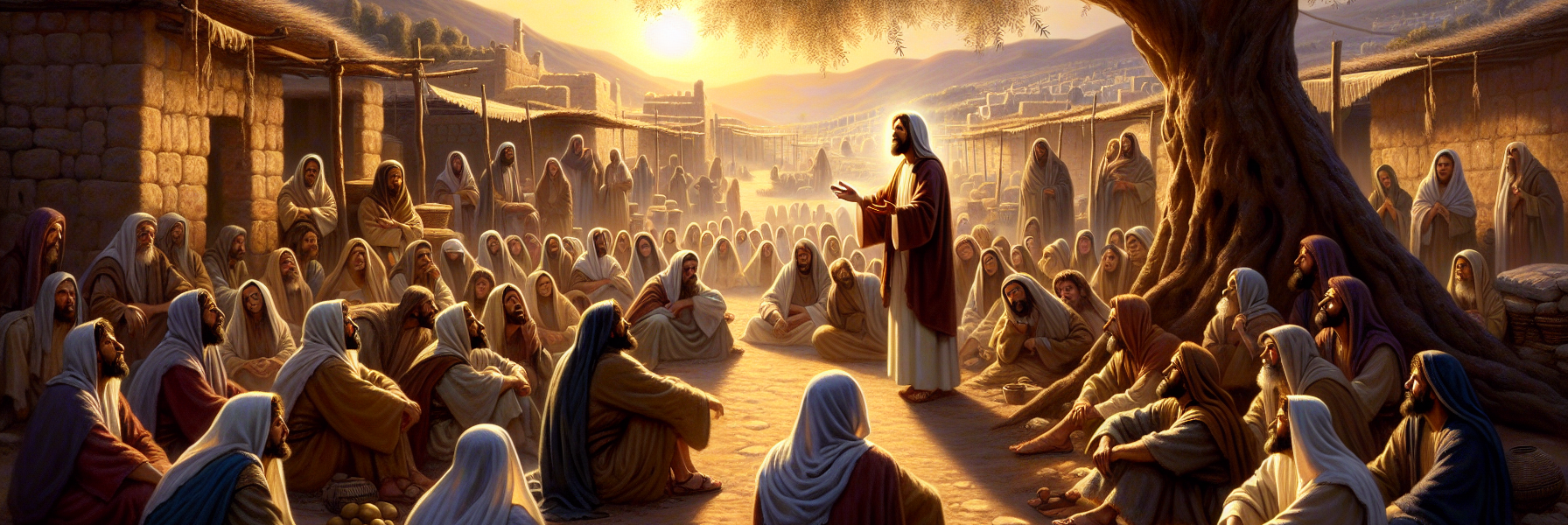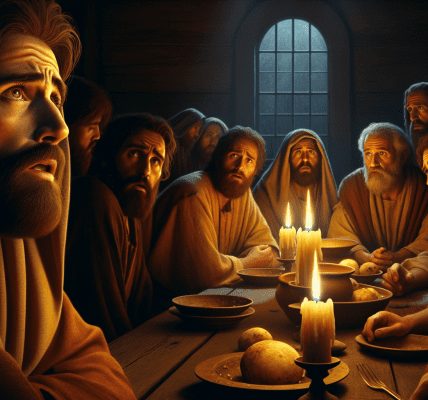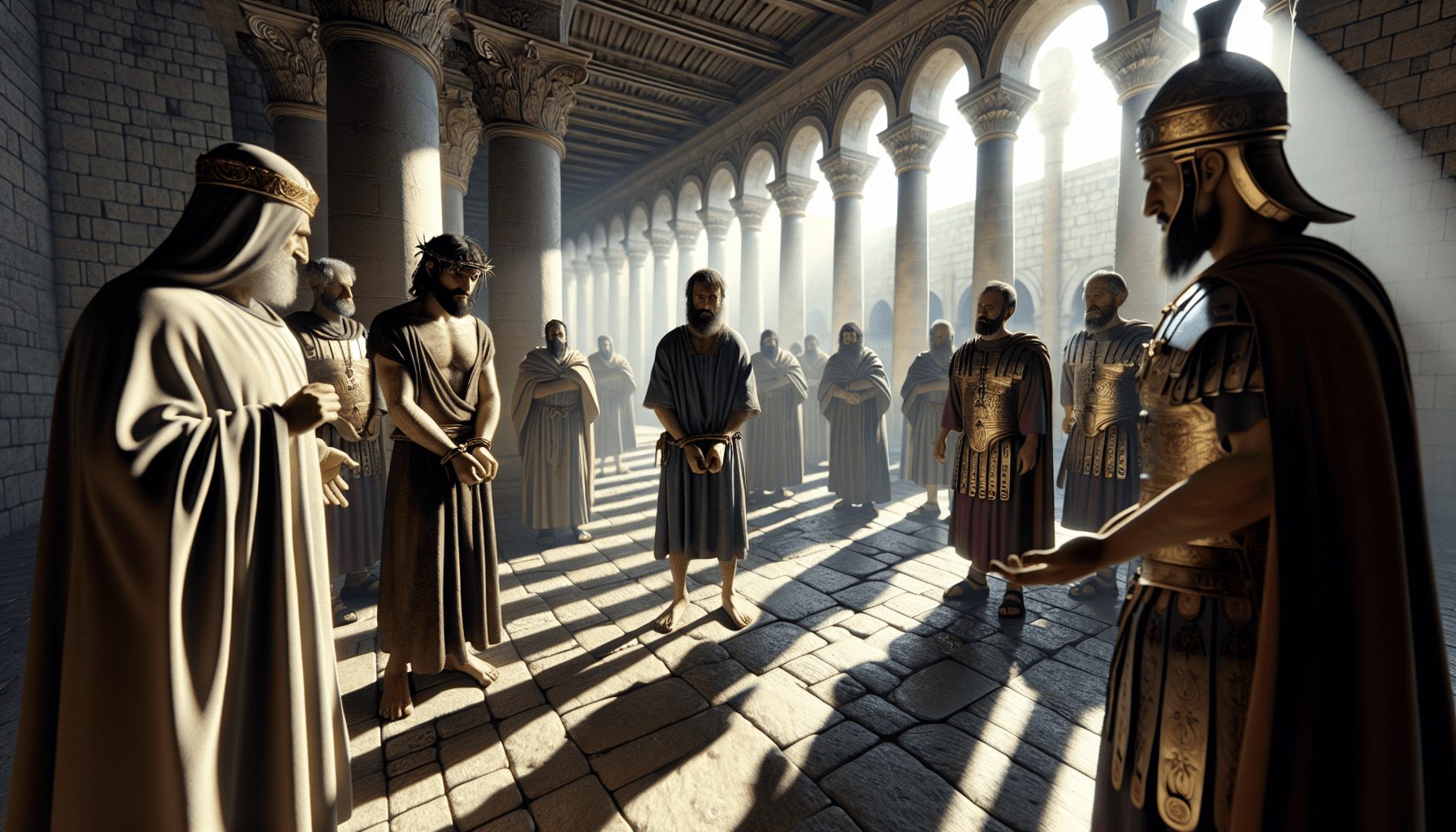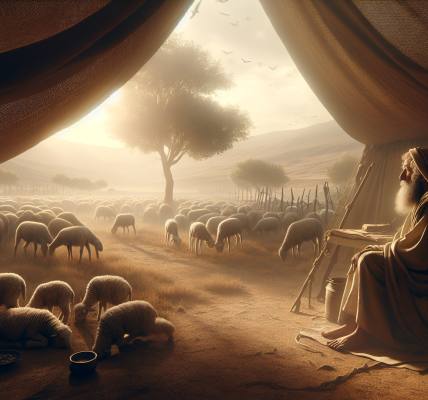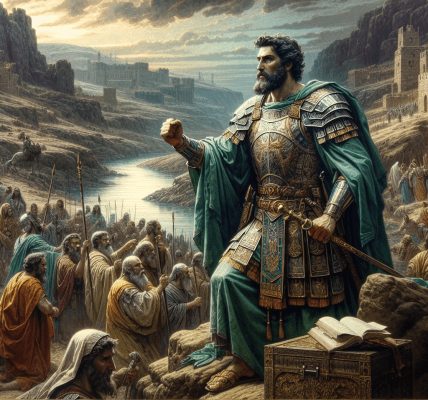**The Parable of the Persistent Widow and the Pharisee and the Tax Collector**
The sun hung low over the dusty streets of a small Judean village as Jesus sat with His disciples beneath the shade of an ancient olive tree. The air was thick with the scent of earth and the distant murmur of merchants closing their stalls for the evening. Around Him, eager listeners leaned in, their faces etched with curiosity and weariness from the day’s toil. Sensing their need for encouragement, Jesus began to speak, His voice carrying the weight of divine wisdom.
### **The Parable of the Persistent Widow**
“There was in a certain city a judge,” Jesus said, His eyes scanning the crowd, “a man who neither feared God nor respected people.” The listeners shifted, some nodding knowingly. Such men were not uncommon in their land—officials who ruled with cold indifference.
“And in that same city, there was a widow,” Jesus continued, His tone softening. The mention of a widow stirred compassion in the hearts of His listeners, for widows were among the most vulnerable, often left without protection or provision. “She came to the judge again and again, pleading, ‘Give me justice against my adversary!’”
Jesus painted the scene vividly—the widow, her face lined with hardship, standing before the judge’s bench day after day, her voice steady despite the weariness in her bones. The judge, irritated at first, dismissed her. But she did not relent. She returned, her persistence unshaken, her resolve unbroken.
“For a while, the judge refused,” Jesus said, folding His hands. “But afterward, he said to himself, ‘Though I neither fear God nor respect man, yet because this widow keeps bothering me, I will give her justice, so that she will not beat me down by her continual coming.’”
A murmur of understanding rippled through the crowd. Jesus leaned forward, His gaze piercing. “Hear what the unrighteous judge says! And will not God give justice to His elect, who cry to Him day and night? Will He delay long over them? I tell you, He will give justice to them speedily.”
His words hung in the air, a promise wrapped in a challenge. “Nevertheless, when the Son of Man comes, will He find faith on earth?”
The disciples exchanged glances, pondering the weight of His question. The widow’s persistence was a lesson—not just in prayer, but in unwavering trust in a God who hears.
### **The Pharisee and the Tax Collector**
As the crowd lingered, Jesus saw the self-satisfied expressions of some religious leaders standing at the edge of the gathering. Their robes were fine, their postures proud. Knowing their hearts, He told them another parable.
“Two men went up into the temple to pray,” He began, “one a Pharisee and the other a tax collector.”
The Pharisee, dressed in flowing garments with tassels meticulously kept, stood apart, lifting his eyes toward heaven with practiced piety. “God, I thank You that I am not like other men,” he prayed, his voice carrying a tone of superiority. “Extortioners, unjust, adulterers—or even like this tax collector. I fast twice a week; I give tithes of all that I get.”
The crowd knew this man—or men like him. They were the models of religious observance, yet their hearts were far from humility.
Then Jesus described the tax collector, a man despised by his own people for collaborating with Rome. He stood far off, unwilling even to lift his eyes to heaven. Instead, he beat his breast in anguish, his voice breaking as he whispered, “God, be merciful to me, a sinner!”
Jesus looked at His listeners intently. “I tell you, this man went down to his house justified, rather than the Pharisee. For everyone who exalts himself will be humbled, but the one who humbles himself will be exalted.”
Silence settled over the crowd. The lesson was clear—true righteousness was not in outward show, but in a heart broken before God.
### **Jesus Blesses the Children**
As the sun dipped lower, casting long shadows, parents began bringing their little ones to Jesus, hoping He might touch them and pray over them. The disciples, perhaps thinking the Master too weary, began to rebuke the families.
But Jesus, seeing this, called them to Him. “Let the children come to Me, and do not hinder them,” He said, His voice gentle but firm. “For to such belongs the kingdom of God. Truly, I say to you, whoever does not receive the kingdom of God like a child shall not enter it.”
One by one, He gathered the children into His arms, laying His hands upon them, blessing them with words that carried the warmth of heaven. The parents watched with tear-filled eyes, their hearts swelling with gratitude.
### **The Rich Ruler’s Sorrow**
As the crowd began to disperse, a man of noble bearing pushed forward, his fine robes marking him as wealthy. He knelt before Jesus, urgency in his voice. “Good Teacher, what must I do to inherit eternal life?”
Jesus regarded him with compassion. “Why do you call Me good? No one is good except God alone.” The words were a quiet reminder—all goodness flows from the Father.
“You know the commandments,” Jesus continued. “Do not commit adultery, do not murder, do not steal, do not bear false witness, honor your father and mother.”
The man nodded eagerly. “All these I have kept from my youth.”
Jesus looked at him, seeing the sincerity—and the barrier. “One thing you still lack. Sell all that you have and distribute to the poor, and you will have treasure in heaven; and come, follow Me.”
The man’s face fell. His wealth was his security, his identity. With a heavy heart, he turned away, sorrowful, for he was very rich.
Watching him go, Jesus said, “How difficult it is for those who have wealth to enter the kingdom of God! It is easier for a camel to go through the eye of a needle than for a rich person to enter the kingdom of God.”
The disciples, astonished, asked, “Then who can be saved?”
Jesus smiled. “What is impossible with man is possible with God.”
Peter, ever impulsive, spoke up. “See, we have left our homes and followed You.”
Jesus placed a hand on his shoulder. “Truly, I say to you, there is no one who has left house or wife or brothers or parents or children, for the sake of the kingdom of God, who will not receive many times more in this time, and in the age to come, eternal life.”
The disciples sat in silence, the weight of His words settling upon them. The journey ahead would demand much—but the reward was beyond measure.
As evening deepened, Jesus rose, His face set toward Jerusalem. The road before Him was one of sacrifice, but He walked it with unwavering resolve—for the sake of those who would believe, for the sake of the kingdom.
And those who followed Him knew—He was leading them into a story far greater than they could imagine.
